Research in Roro, December 2021
Report by Napoleon Ne’umute Susub
The Kairuku or Roro language has been spoken by the Kairuku people for generations. Through time, the language has evolved into the way it is spoken now. Changes are due to intermarriages which occurred mainly through marrying locals of the lands the Kairuku people conquered on their famous migration toward the east near the western end of the Motu-speaking people. Another cause of language change through intermarriages was because of the hiri trade or viri as it is known locally, well before the arrival of early missionaries. Finally, change has been brought about through Western influence, starting with the first missionaries (the French Missionaries of the Sacred Heart in 1884) that came to Yule Island in the Kairuku area. Today, pop culture has had a massive influence on how Roro is spoken.
The Kairuku Roro language is spoken by 13 Kairuku villages, starting from where the Kairuku people originated from, that is, Kivori and Waima. The language is the same although each village its own dialect variations. For instance, in Waima, Kivori, or Hisiu “look” is said as moihana, while in Yule Island they say moitana.
Despite its changes and differences, the Roro language is and will always remain the main source of Identity for the Kairuku people.
Napoleon Ne’umute Susub researched the Kairuku (Roro) recordings in the True Echoes Project. He is currently a final year Literature Major student in the School of Humanities and Social Sciences at the University of Papua New Guinea. As well as being a student, Napoleon is also an intern with the UN- IOM (International Organization for Migration.)
Recordings
The new recordings that were taken are examples of how songs were sung back in the 1800s. The language evolved, but the songs remained as how they were 100 years ago. Because the recordings from the British Library were not clear, new recordings had to be made. Different styles of singing recorded here include, general festival songs (ewa huina), aroba (chanting), and ikewa (dancing with a staff or rod with rattles attached on the top).
Village elder Mare Here, recorded in Ere Ere, Waima
Recorded on 12 December 2021
(3 minutes 26 seconds)
In this recording, Mare Here, a village elder from Ere Ere sub-village, Tona Aona clan, in Waima village describes what AIVA TERO or cylinder number C80/0828 is about. He mentions that the language that is used in this song and the song itself is from ancient times. Mare attempts to translate the lyrics of the song and hence states that AIVA TERO is the name of a woman. According to him, the lines “Aiva Tero tapuana to’api’e to’ani’nehh” translates as: Aiva Tero’s outfit (tapuana) been taken (to’api’e) and eaten (to’ani’nehh). He makes mention that this song originates from Biotou village. It is categorized as an ewa huina (dance song) and therefore sung and performed in all the Kairuku (Roro) speaking villages.
Mare Here sings a dance song
Recorded on 11 December 2021
(1 minute 6 seconds)
The song tells the story of a dance competition between Ere Ere and Korina sub-villages of Waima. Mare Here states that the sub-villages of Ere Ere and Korina had a traditional dance competition which Ere Ere won. Therefore, as an act of preservation and remembrance, a dance song was composed, and this is passed on from one generation to another.
Recording made in Ere Ere, Waima Village
Recorded on 12 December 2021
(2 minutes 21 seconds)
In this video, Mare Here sings another dance song. After singing the song, he then tells the story behind the song. He mentions that long ago, two brothers named Owai and Pekau went out hunting in the woods. The song lyrics mention that when the hunting was over, Owai, the eldest brother, waited and waited (ima ima eh) in the woods (otora auna) for his younger brother, Pekau, to show up, but he never did. Owai sang this song so that his younger brother could hear it and meet up with him so that they could return home together.
Historical Recordings
The following cylinders were researched by Napoleon Susub from the Alfred Cort Haddon 1898 Expedition (Torres Strait and British New Guinea) Cylinder Collection (C80 British New Guinea).
| British Library shelfmark | Recording title | Performer name | Recording location | Recording date | Content description | Performer description | Recording notes | Languages | Genre | Recordist | Recording length | Recording trip | Description of cylinder | Collection title | Cylinder location | Images of cylinder containers / documentation | Related print publication: | Related print publication: | Related print publication: | Related print publication: | Related print publication: | Related print publication: |
|---|---|---|---|---|---|---|---|---|---|---|---|---|---|---|---|---|---|---|---|---|---|---|
| C80/828 | Roro Dance | Unidentified (singer, male); unidentified (percussion) | Roro language area, Central District, British New Guinea | 7 July 1898 – 18 July 1898 | 1. Announcement: "[indecipherable] song. 2. Male vocal solo with drum accompaniment. | Poor quality recording with weak signal and surface noise. | Waima / Roro | Field recordings | Ray, Sidney | 2'43" | Alfred Cort Haddon 1898 Expedition, British New Guinea | Brown wax cylinder | Alfred Cort Haddon 1898 Expedition (Torres Strait and British New Guinea) Cylinder Collection | British Library | 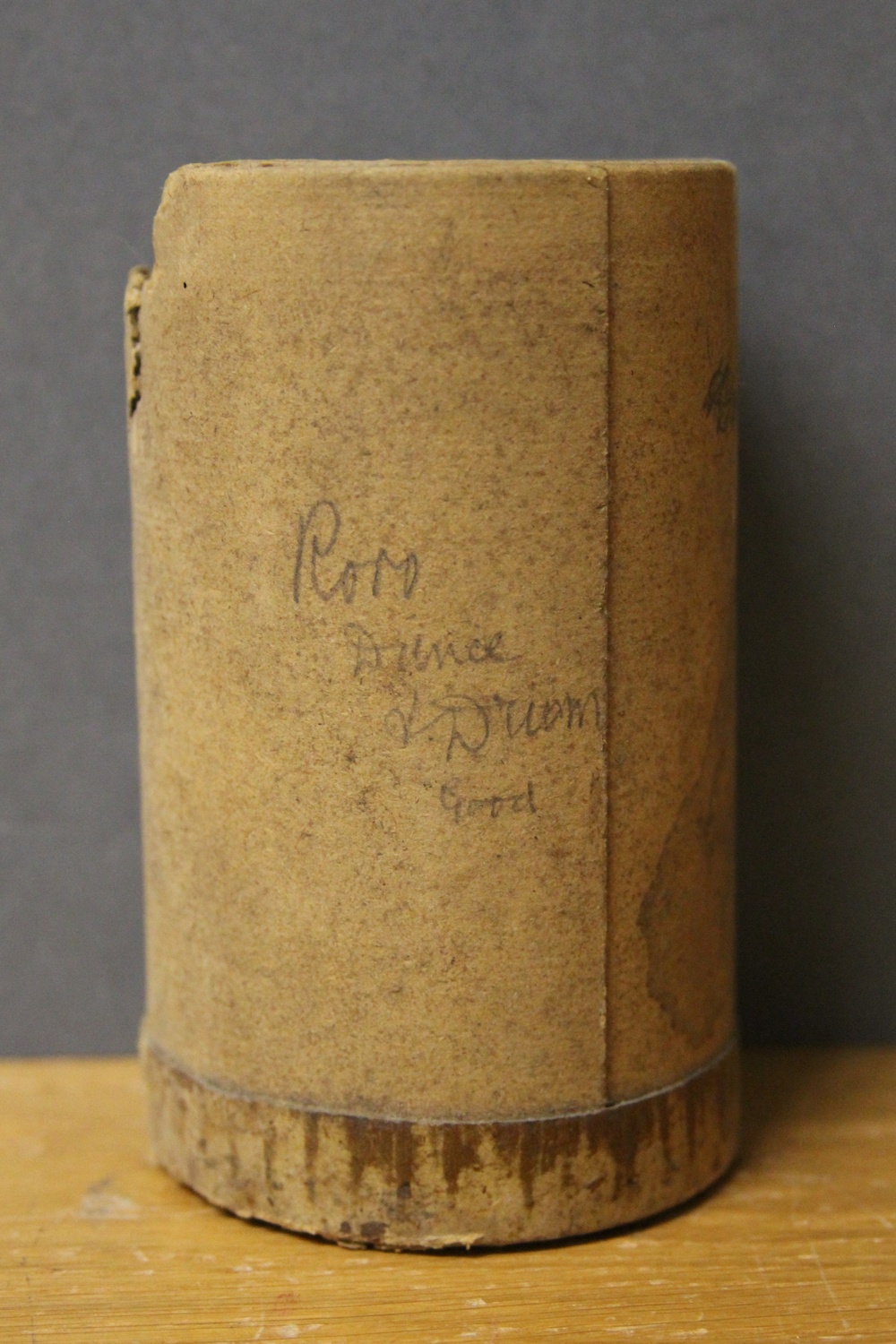 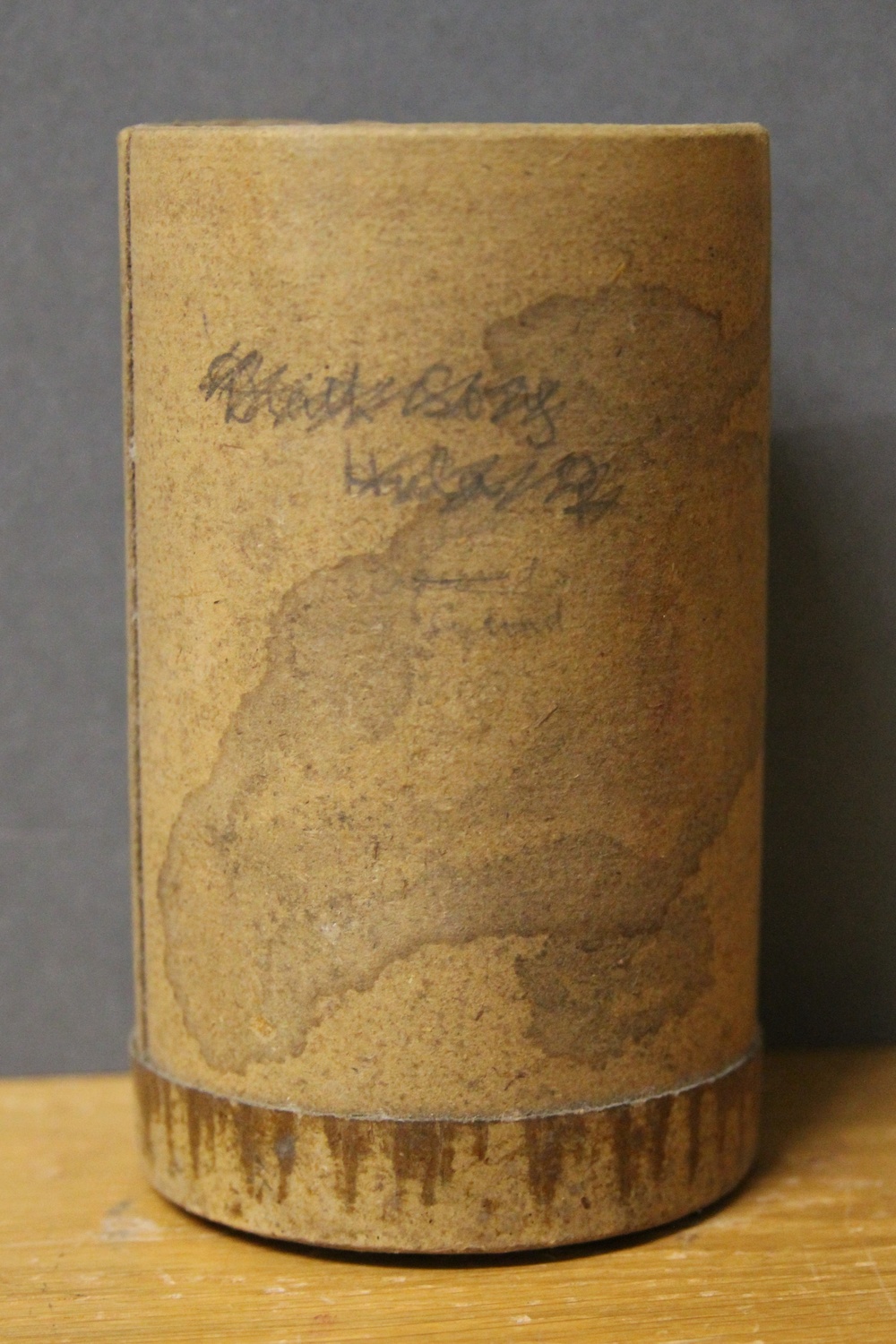     | |||||||
| C80/1455 | Hymn 41 Glory | Unidentified (male chorus) | British New Guinea | 27 May 1898 – 1 October 1898 | 1. Unaccompanied male vocal group. | Reasonable quality recording but some surface noise. | Field recordings | Ray, Sidney | 2'12" | Alfred Cort Haddon 1898 Expedition, British New Guinea | Brown wax cylinder | Alfred Cort Haddon 1898 Expedition (Torres Strait and British New Guinea) Cylinder Collection | British Library | 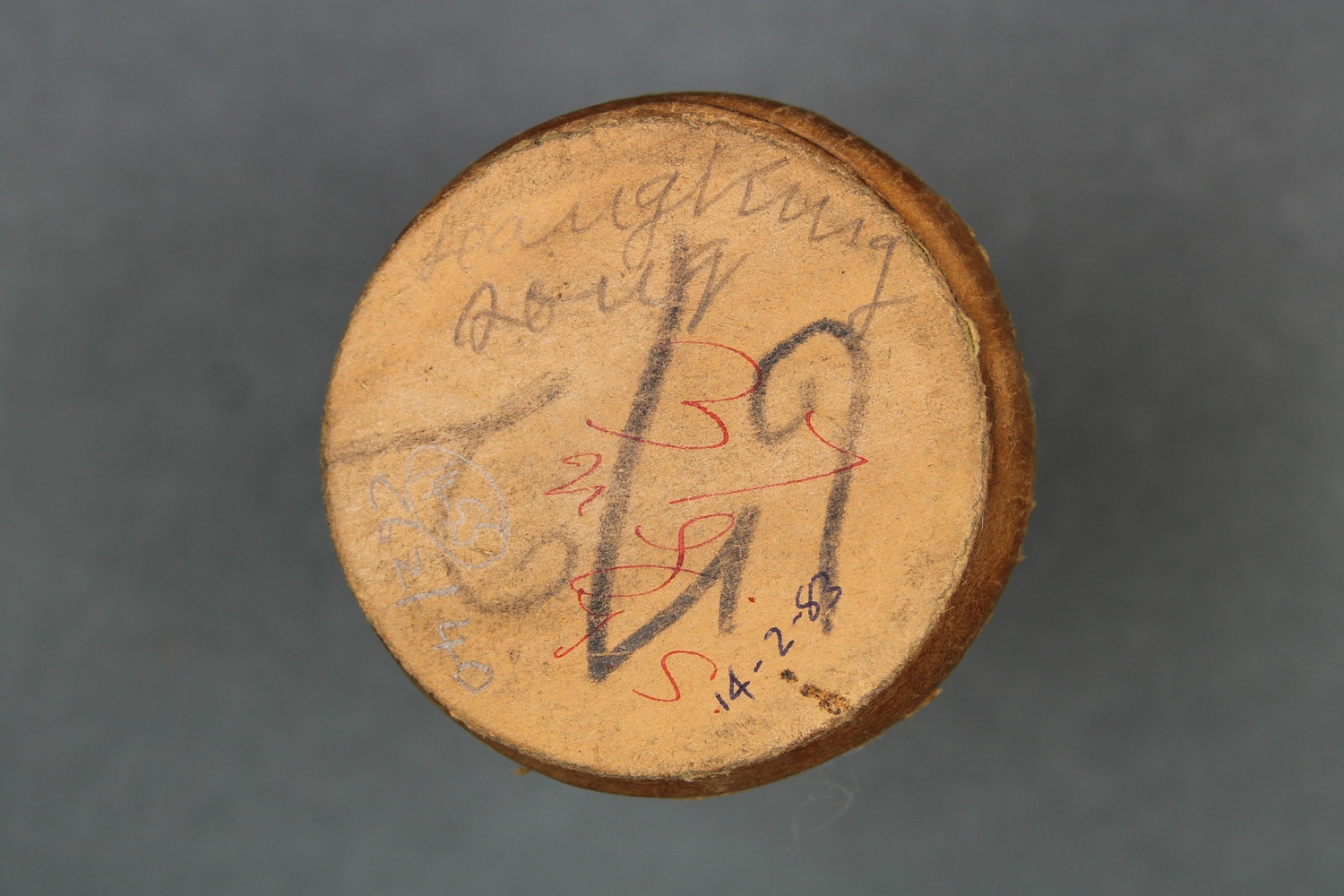 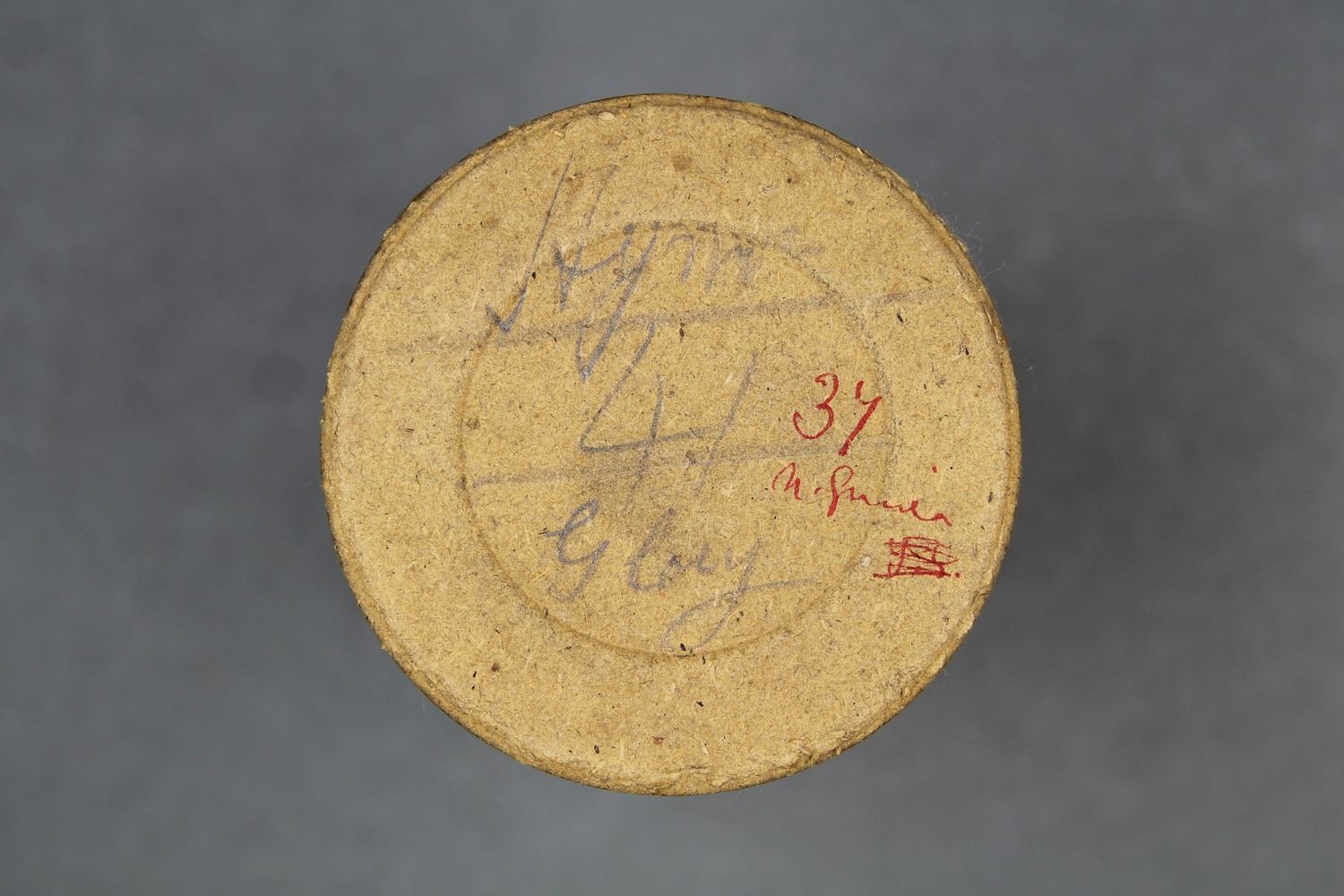     | ||||||||
| C80/1457 | Hymn | Unidentified (male chorus) | British New Guinea | 27 May 1898 – 1 October 1898 | 1. Unaccompanied male vocal group. | Reasonable quality recording but with surface noise. | Field recordings; Hymns | Ray, Sidney | 2'13' | Alfred Cort Haddon 1898 Expedition, British New Guinea | Brown wax cylinder | Alfred Cort Haddon 1898 Expedition (Torres Strait and British New Guinea) Cylinder Collection | British Library | 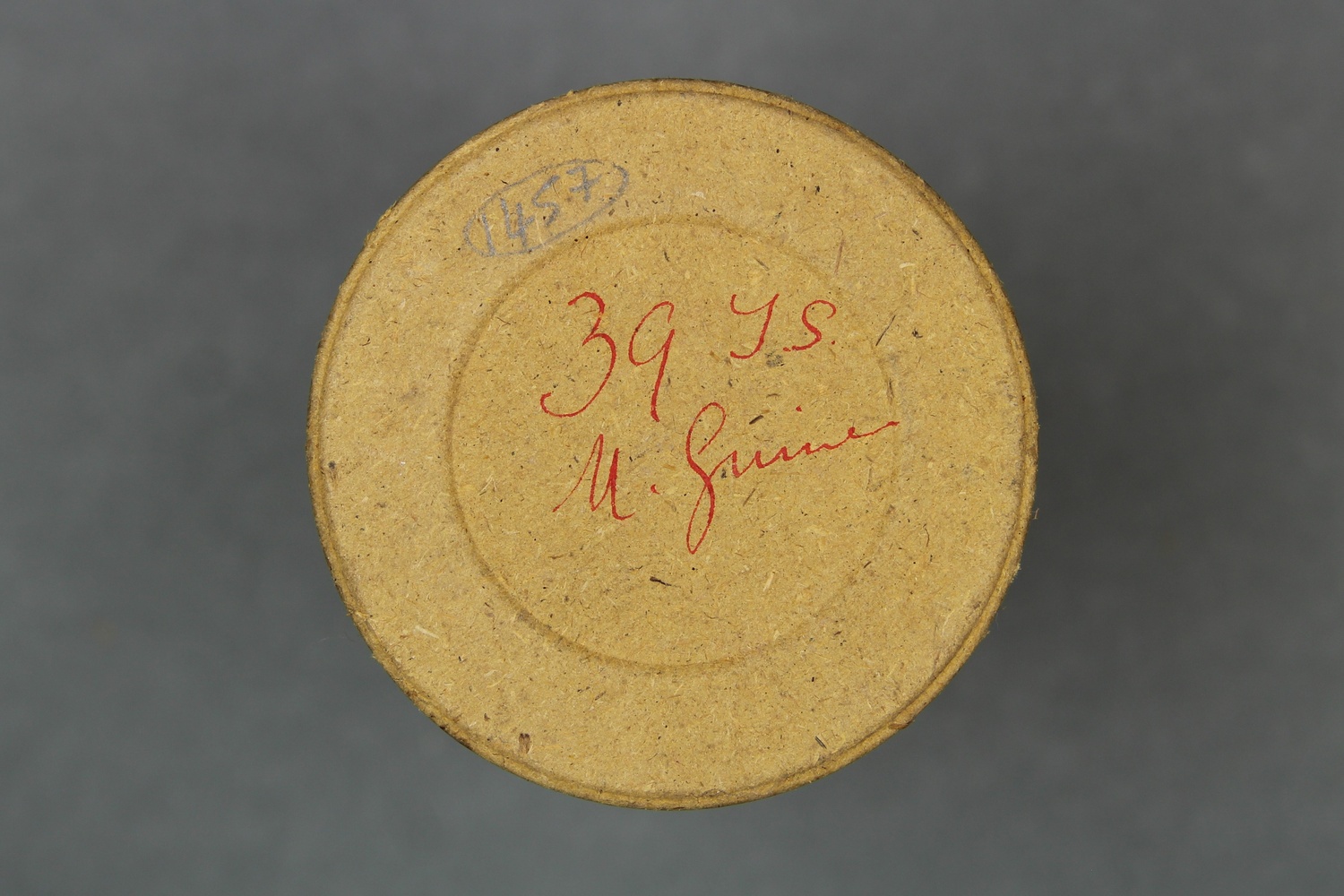 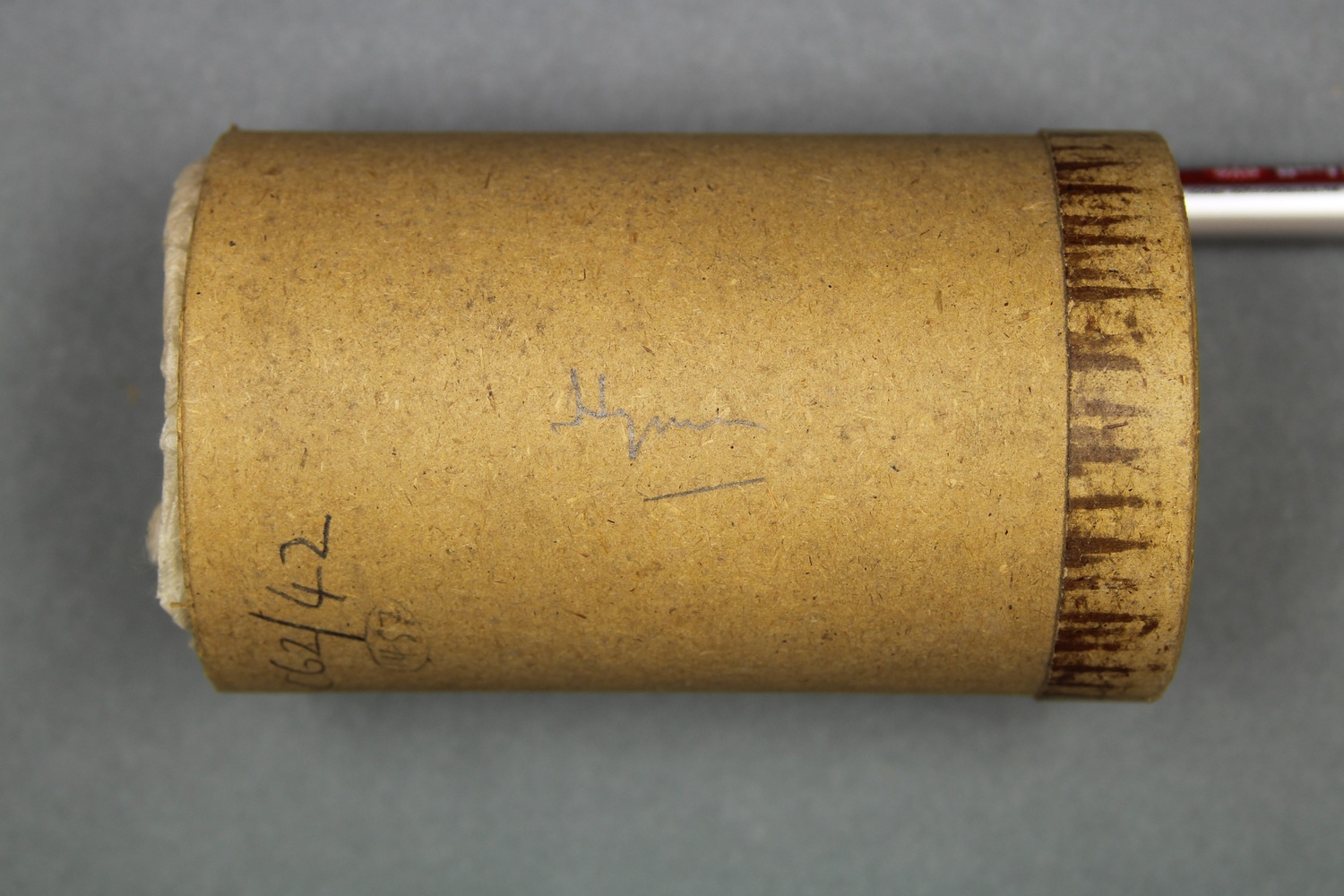     | ||||||||
| C80/1458 | Hymn No.23 Wareham | Unidentified (singer, male) | British New Guinea | 27 May 1898 – 1 October 1898 | 1. Unaccompanied male vocal solo. | Reasonable quality recording but with some surface noise. | Field recordings; Hymns | Ray, Sidney | 1'50" | Alfred Cort Haddon 1898 Expedition, British New Guinea | Light brown wax cylinder | Alfred Cort Haddon 1898 Expedition (Torres Strait and British New Guinea) Cylinder Collection | British Library | 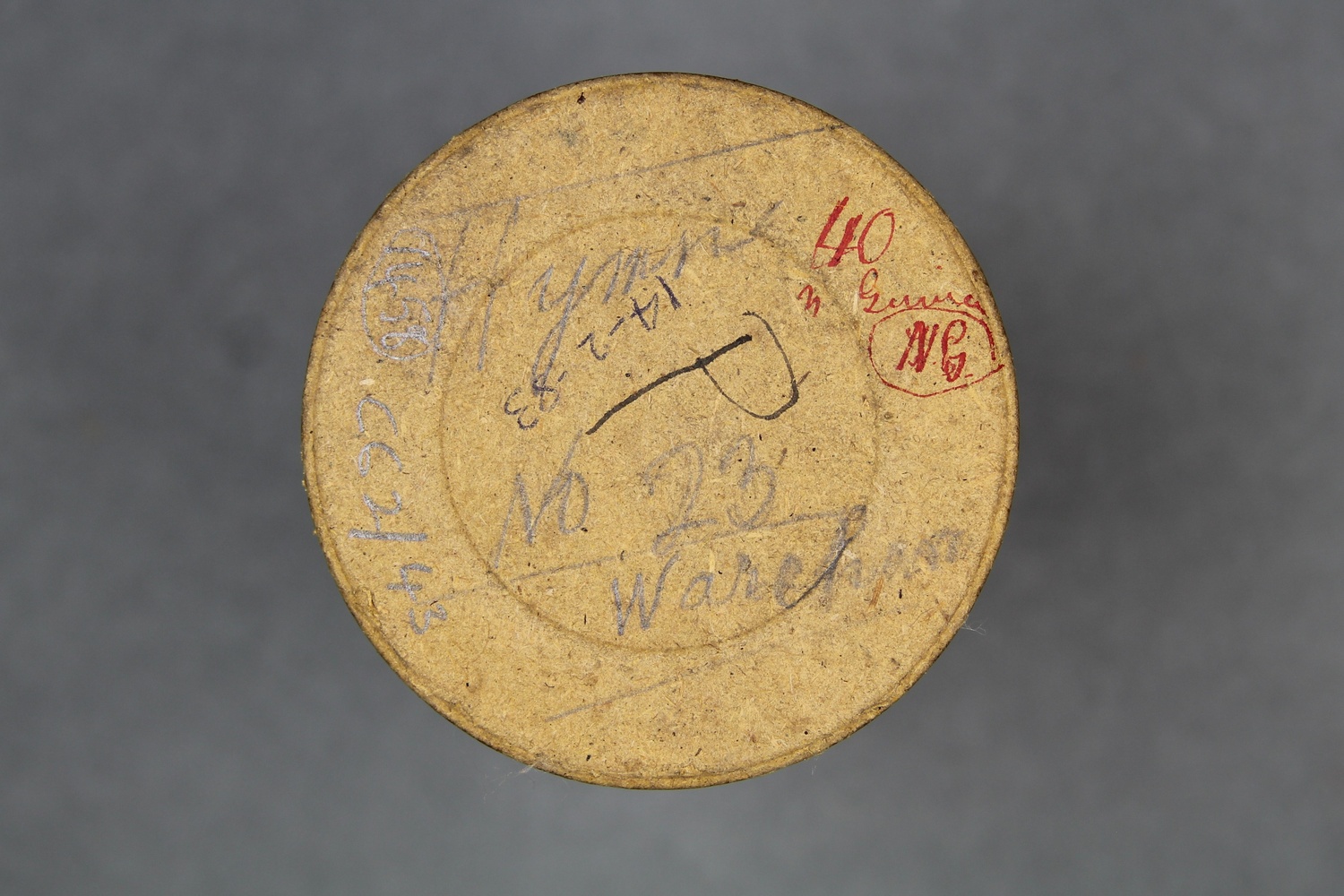 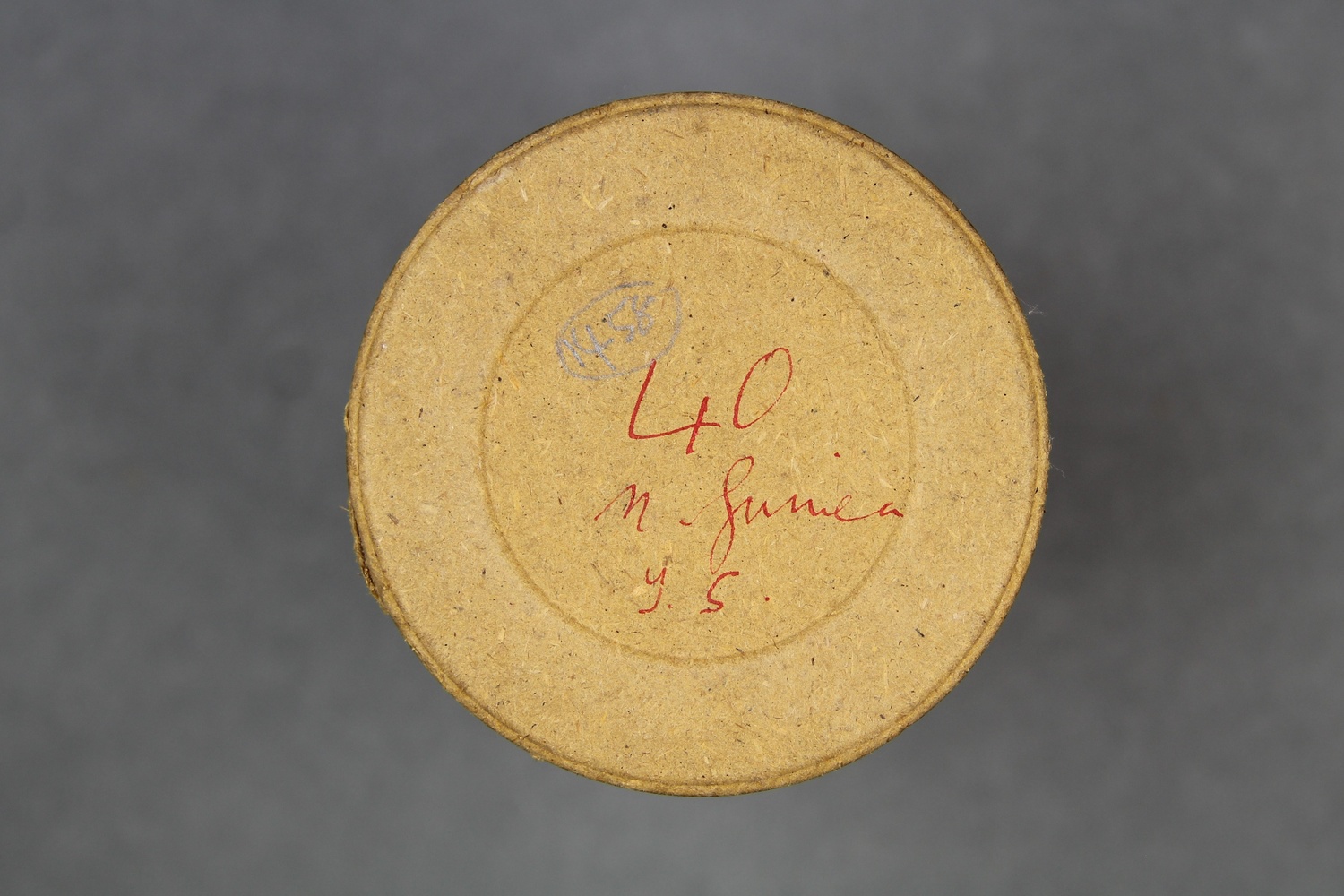     | ||||||||
| C80/1470 | Roro Song | Unidentified (singer, male) | Tsiria Island, Central District, British New Guinea | 12 July 1898 – 13 July 1898 | 1. Announcement: "Roro[?] song." 2. Unaccompanied male vocal solo. | Poor quality recording with weak signal and surface noise. | Waima / Roro | Field recordings | Ray, Sidney | 2'10" | Alfred Cort Haddon 1898 Expedition, British New Guinea | Light brown wax cylinder | Alfred Cort Haddon 1898 Expedition (Torres Strait and British New Guinea) Cylinder Collection | British Library | 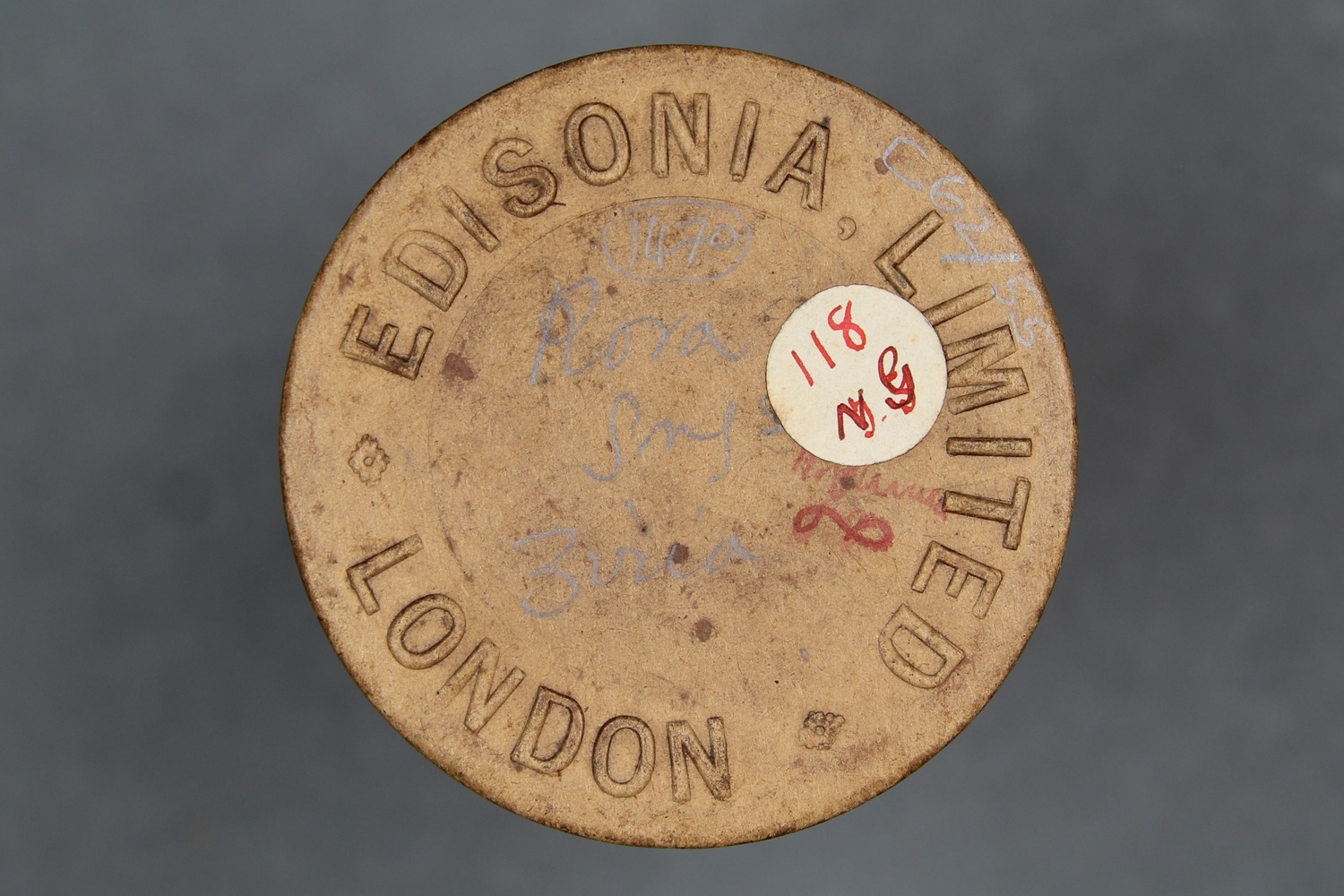 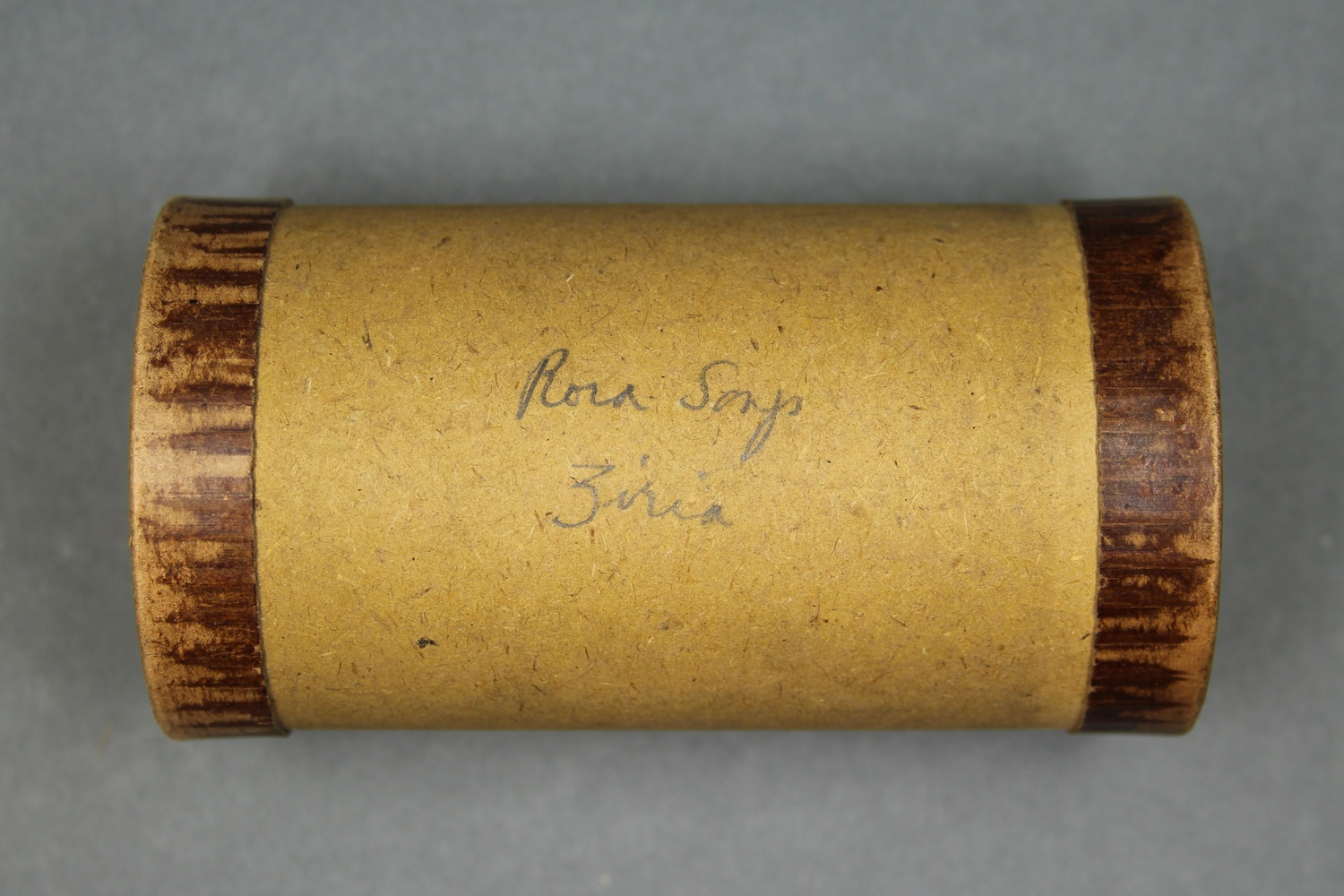     | |||||||
| C80/1471 | Mekeo War Song | Iniauna Kakouma (singer, male?, Eke of Veifaa) | Mekeo, Central District, British New Guinea | 7 July 1898 – 18 July 1898 | 1. 'Mekeo war song.' 2. Female [?] vocal solo, accompanied by percussion. 3. "Song [indecipherable]." 4. Unaccompanied female [?] vocal solo. | Reasonable quality recording. | Mekeo | Field recordings; War song and dance | Ray, Sidney | 2'46" | Alfred Cort Haddon 1898 Expedition, British New Guinea | Light brown wax cylinder | Alfred Cort Haddon 1898 Expedition (Torres Strait and British New Guinea) Cylinder Collection | British Library |   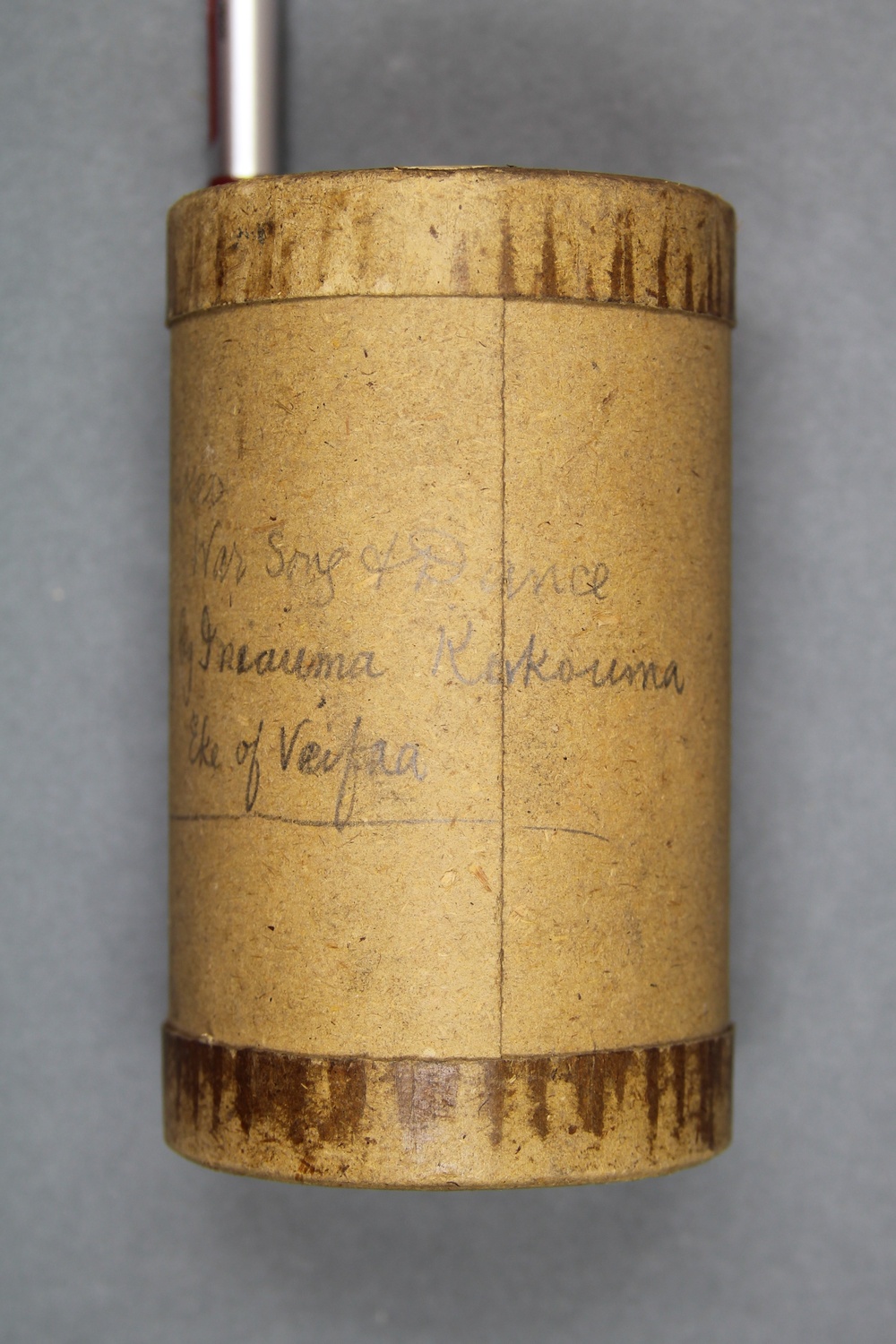    | |||||||
| C80/1472 | Roro Hymn [1] | Unidentified (singer, male); Unidentified (male chorus) | Roro language area, Central District, British New Guinea | 7 July 1898 – 18 July 1898 | 1. Announcement: "A Roro Humn." 2. Male vocal solo, occasionally acc. vocal group." | Reasonable quality recording but with surface noise due to mould on cylinder. | Waima / Roro | Field recordings; Hymns | Ray, Sidney | 2'44" | Alfred Cort Haddon 1898 Expedition, British New Guinea | Light brown wax cylinder | Alfred Cort Haddon 1898 Expedition (Torres Strait and British New Guinea) Cylinder Collection | British Library | 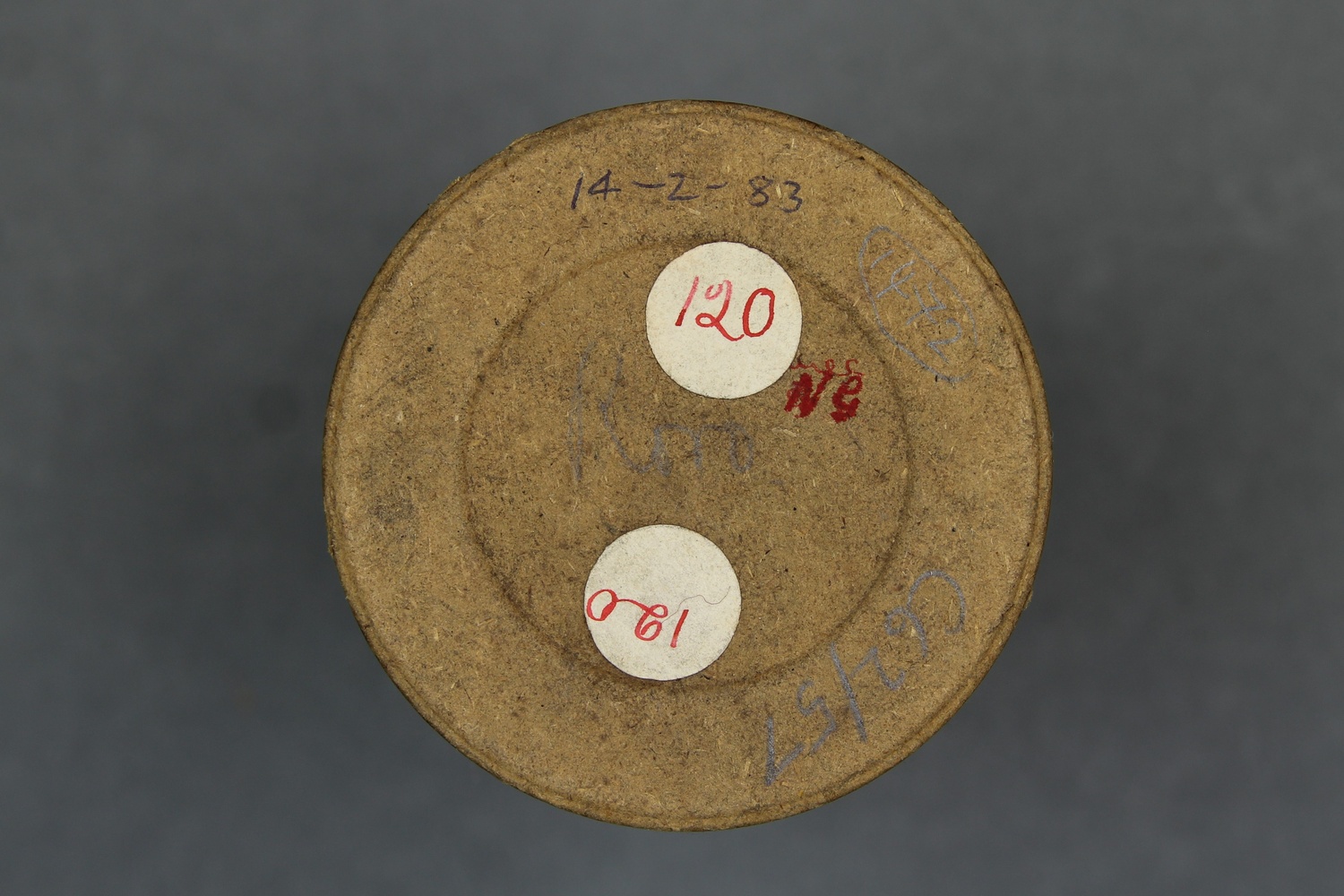      | |||||||
| C80/1473 | Roro Walking Song | Unidentified (singer, male) | Mekeo or Roro, Central District, British New Guinea | 7 July 1898 – 18 July 1898 | 1. Announcement: "A Roro walking song." 2. Unaccompanied male vocal solo. 3. "Mekeo dance song." 4. Unaccompanied male vocal solo. 5 "A mountain song." 6. Unaccompanied male vocal solo. | Reasonable quality recording but with surface noise due to patches of mould on cylinder. | Mekeo and Waima / Roro | Field recordings | Ray, Sidney | 2'58" | Alfred Cort Haddon 1898 Expedition, British New Guinea | Light brown wax cylinder | Alfred Cort Haddon 1898 Expedition (Torres Strait and British New Guinea) Cylinder Collection | British Library | 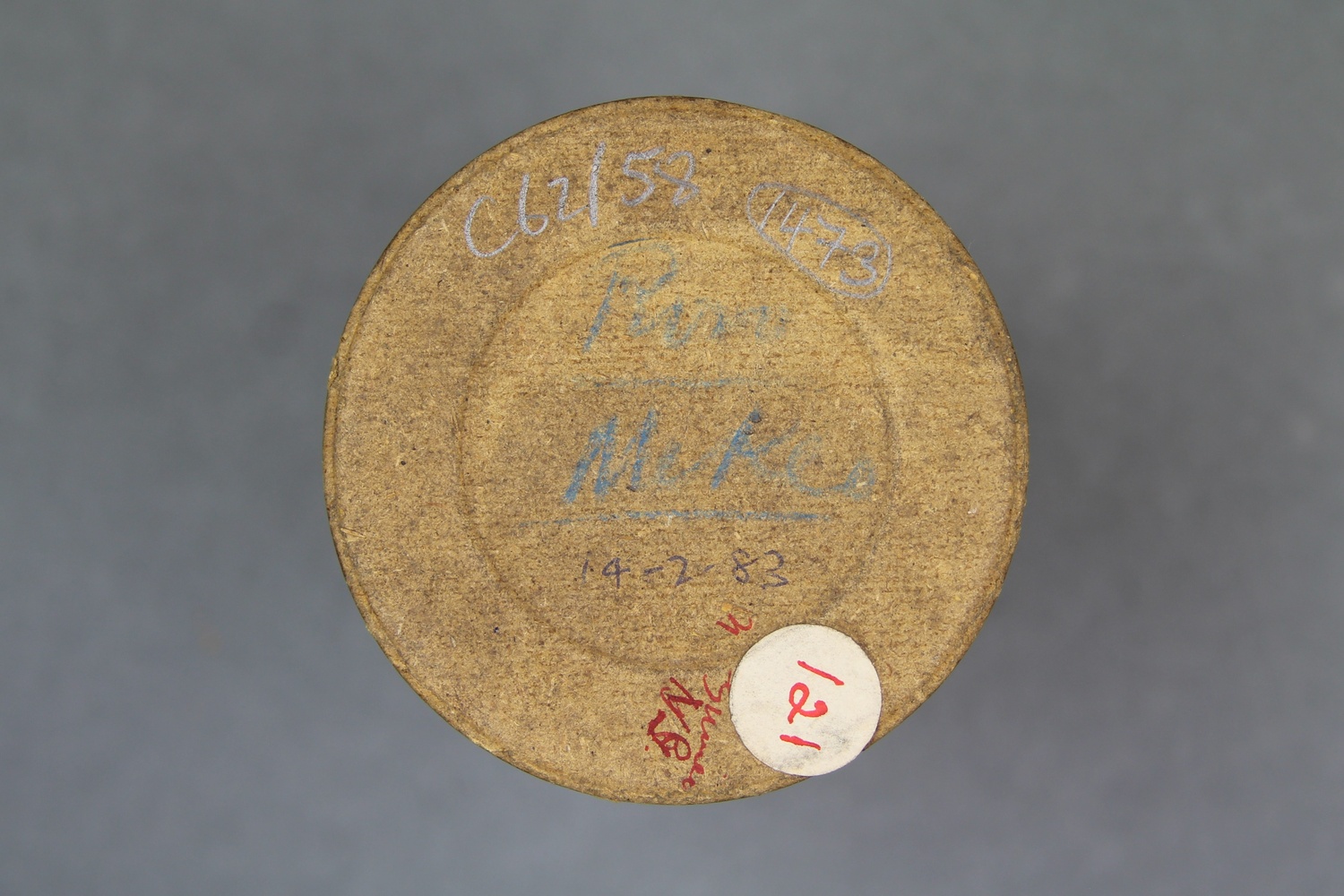 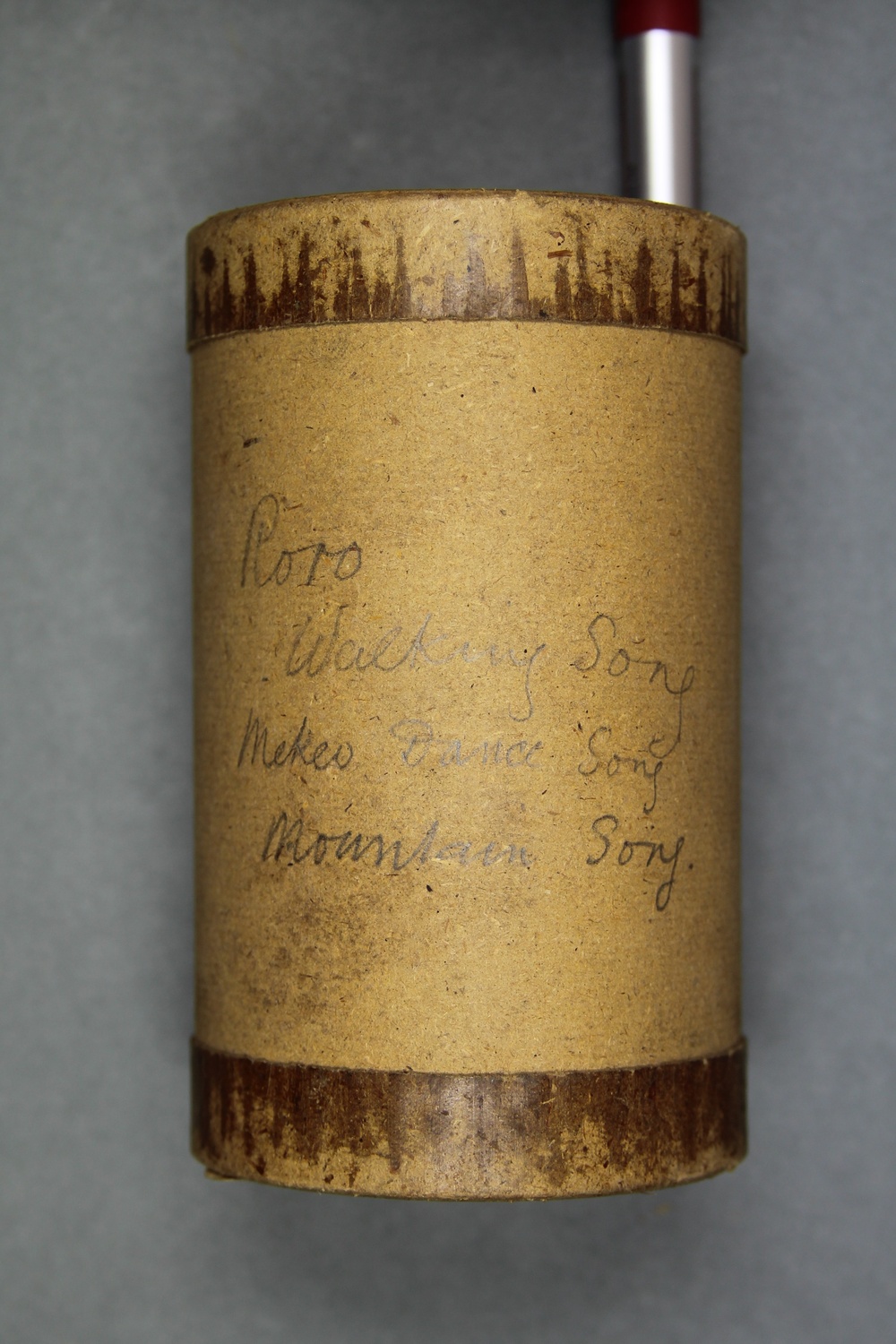     | |||||||
| C80/1474 | Roro Hymn Dominika | Unidentified (singer, male) | Roro language area, Central District, British New Guinea | 7 July 1898 – 18 July 1898 | 1. Announcement: "A Roro Hymn." 2. Unaccompanied male vocal solo. | Reasonable quality recording but with surface noise due to mould on cylinder. | Waima / Roro | Field recordings; Hymns | Ray, Sidney | 2'34" | Alfred Cort Haddon 1898 Expedition, British New Guinea | Light brown wax cylinder | Alfred Cort Haddon 1898 Expedition (Torres Strait and British New Guinea) Cylinder Collection | British Library | 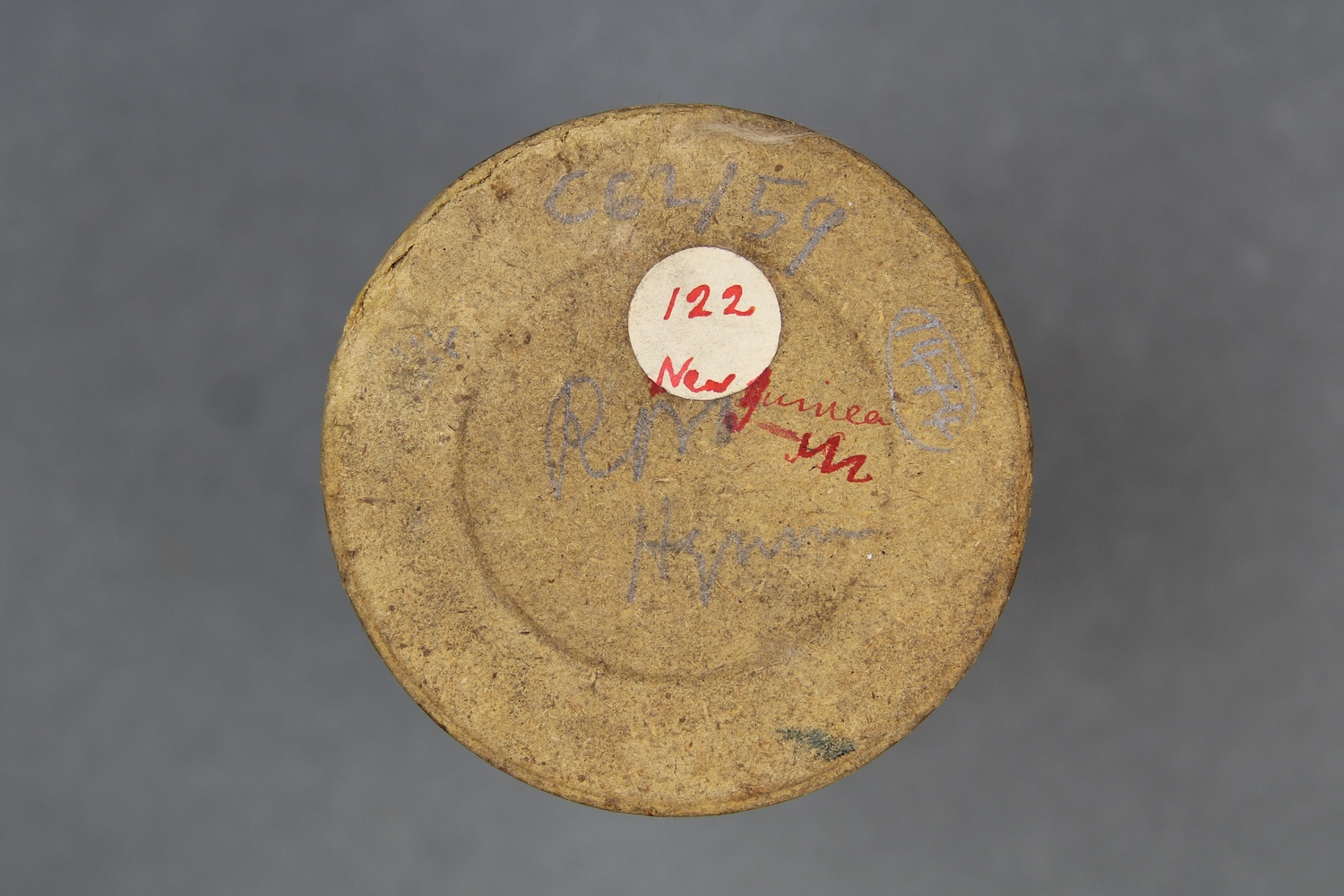 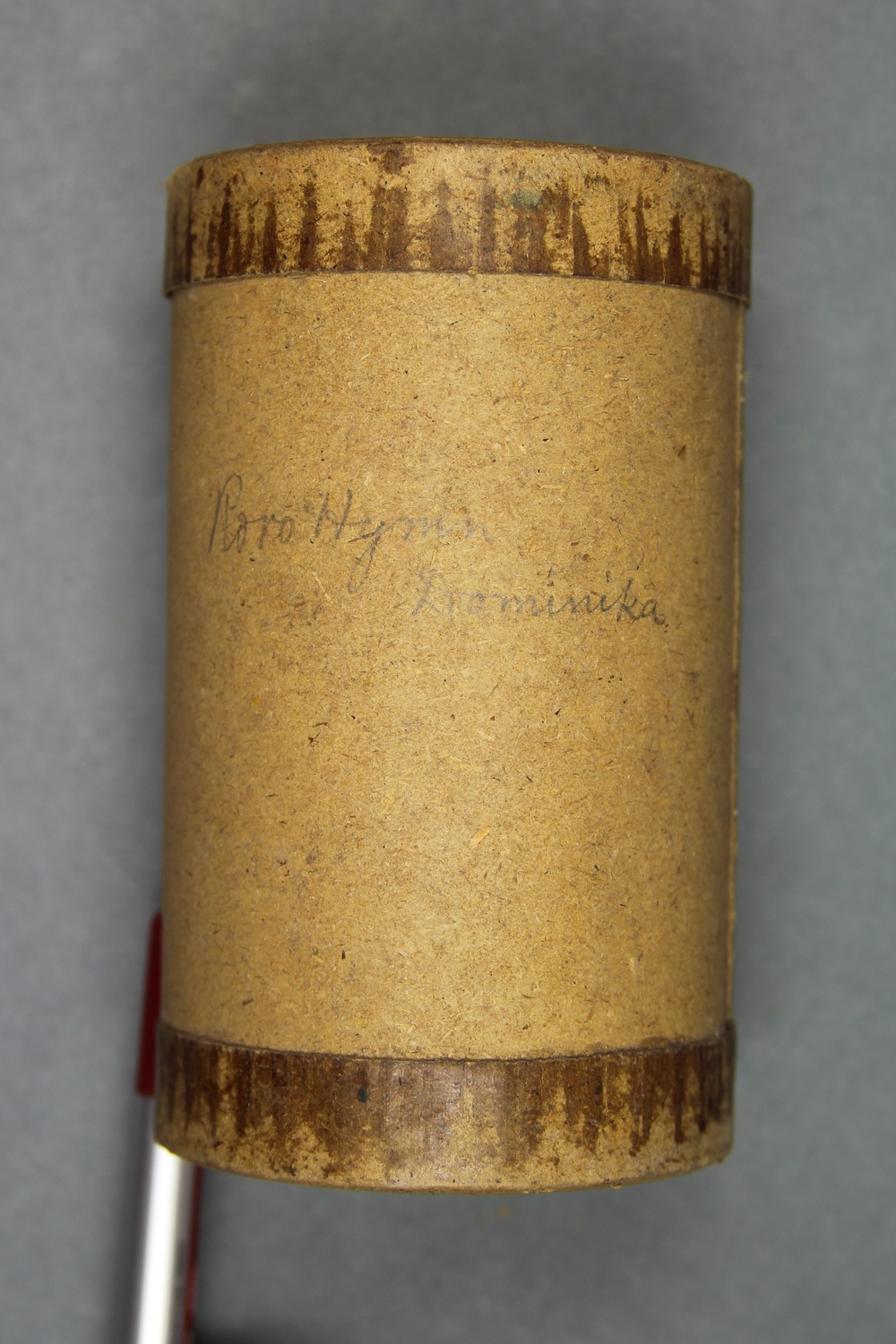     | |||||||
| C80/1475 | Mekeo Dance and Song | Unidentified (singer, male) | Mekeo, Central District, British New Guinea | 7 July 1898 – 18 July 1898 | 1. Announcement: "Mekeo Dance Song." 2. Unaccompanied male vocal group. 3. "Another Mekeo song." 4. Unaccompanied male vocal solo. 5. "Another Mekeo Song." 6. Unaccompanied male vocal solo. | Reasonable quality recording but with weak signal and surface noise. | Mekeo | Field recordings | Ray, Sidney | 2'52" | Alfred Cort Haddon 1898 Expedition, British New Guinea | Light brown wax cylinder | Alfred Cort Haddon 1898 Expedition (Torres Strait and British New Guinea) Cylinder Collection | British Library |  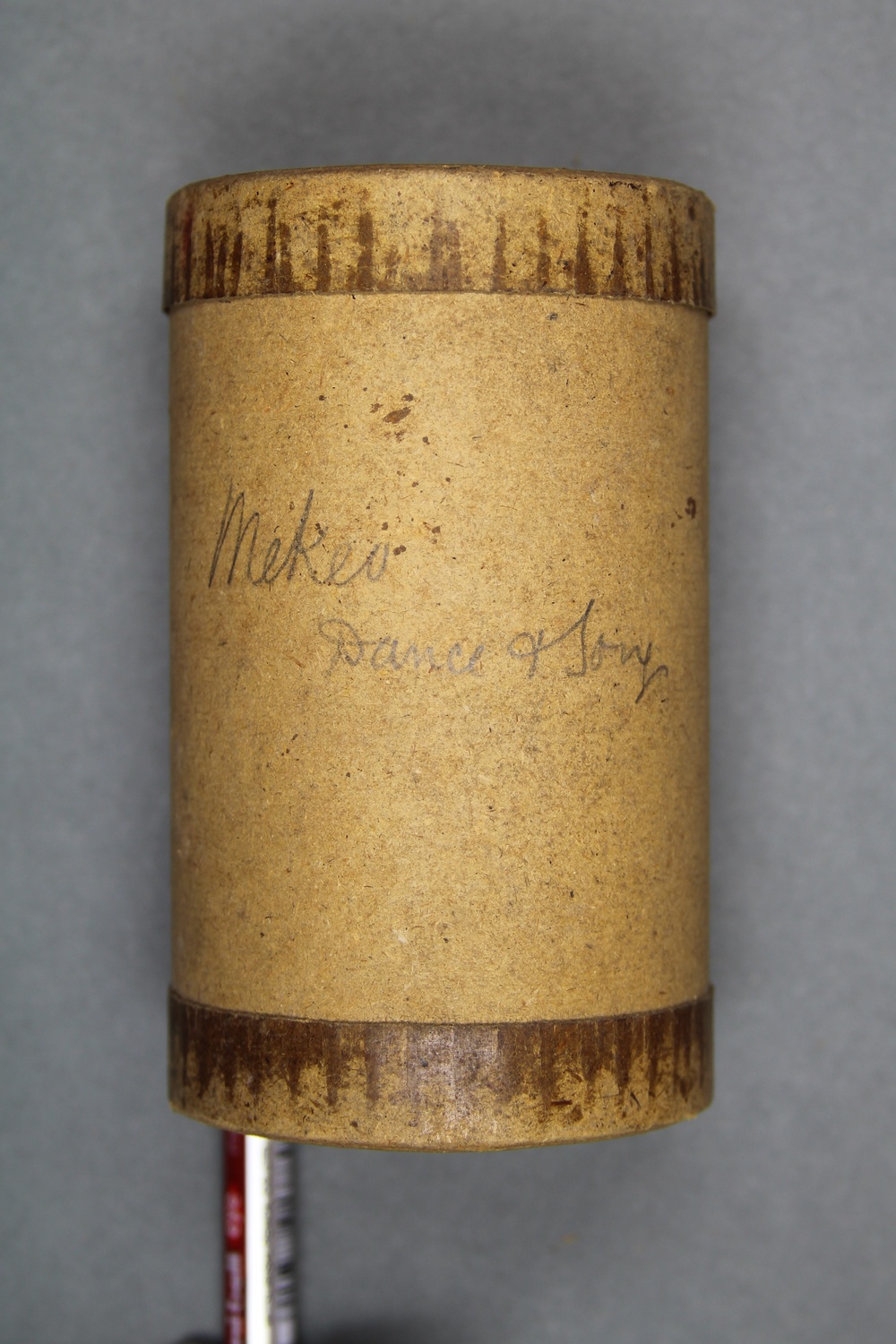     | |||||||
| C80/1476 | Roro Aroba Marching Songs | Unidentified (singer, male); Unidentified (male chorus) | Roro language area, Central District, British New Guinea | 7 July 1898 – 18 July 1898 | 1. Announcement: "An Aroba or Roro song" 2. Unaccompanied male vocal solo. 3. "Another Aroba." 4. Unaccompanied male vocal solo. 5. Another Aroba." 6. Unaccompanied male vocal solo. 7. "Roro [indecipherable] march." 8. Unaccompanied male vocal group. | Reasonable quality recording but with some surface noise. | Waima / Roro | Field recordings | Ray, Sidney | 3'01" | Alfred Cort Haddon 1898 Expedition, British New Guinea | Light brown wax cylinder | Alfred Cort Haddon 1898 Expedition (Torres Strait and British New Guinea) Cylinder Collection | British Library | 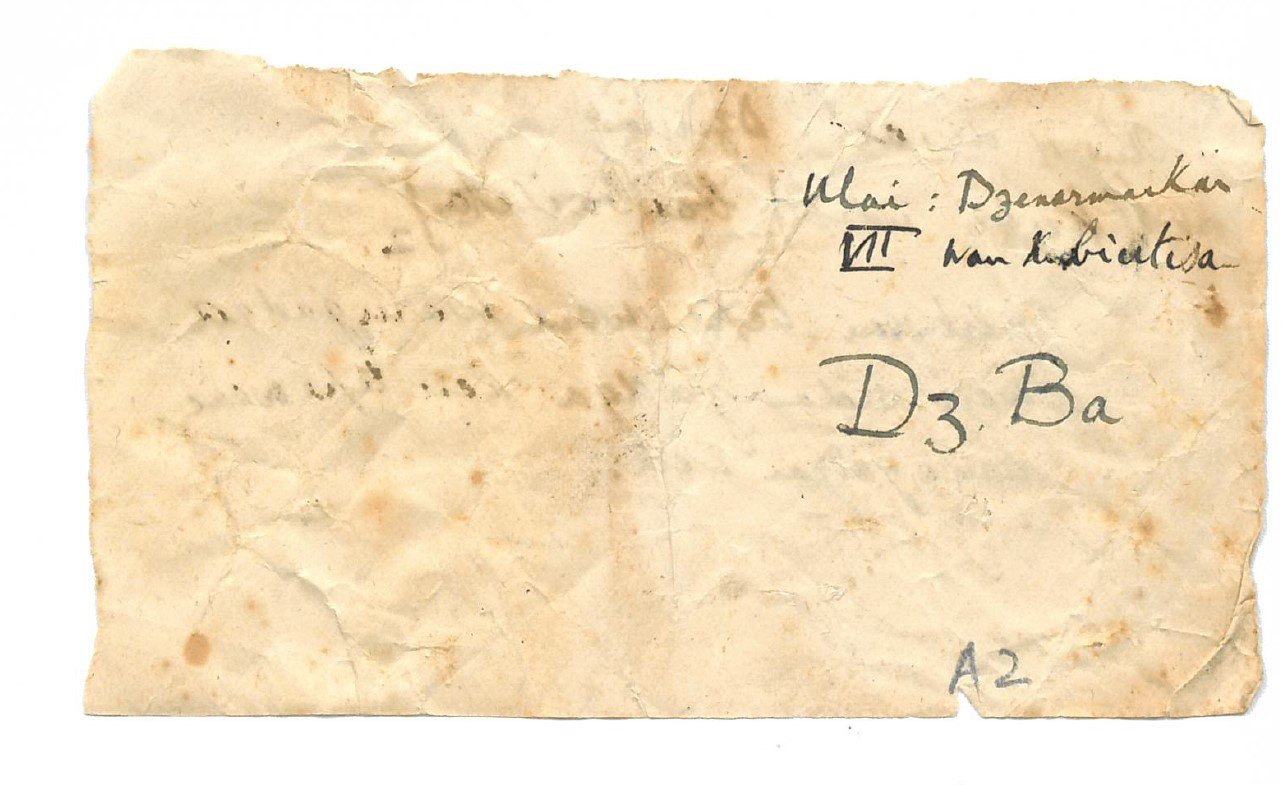 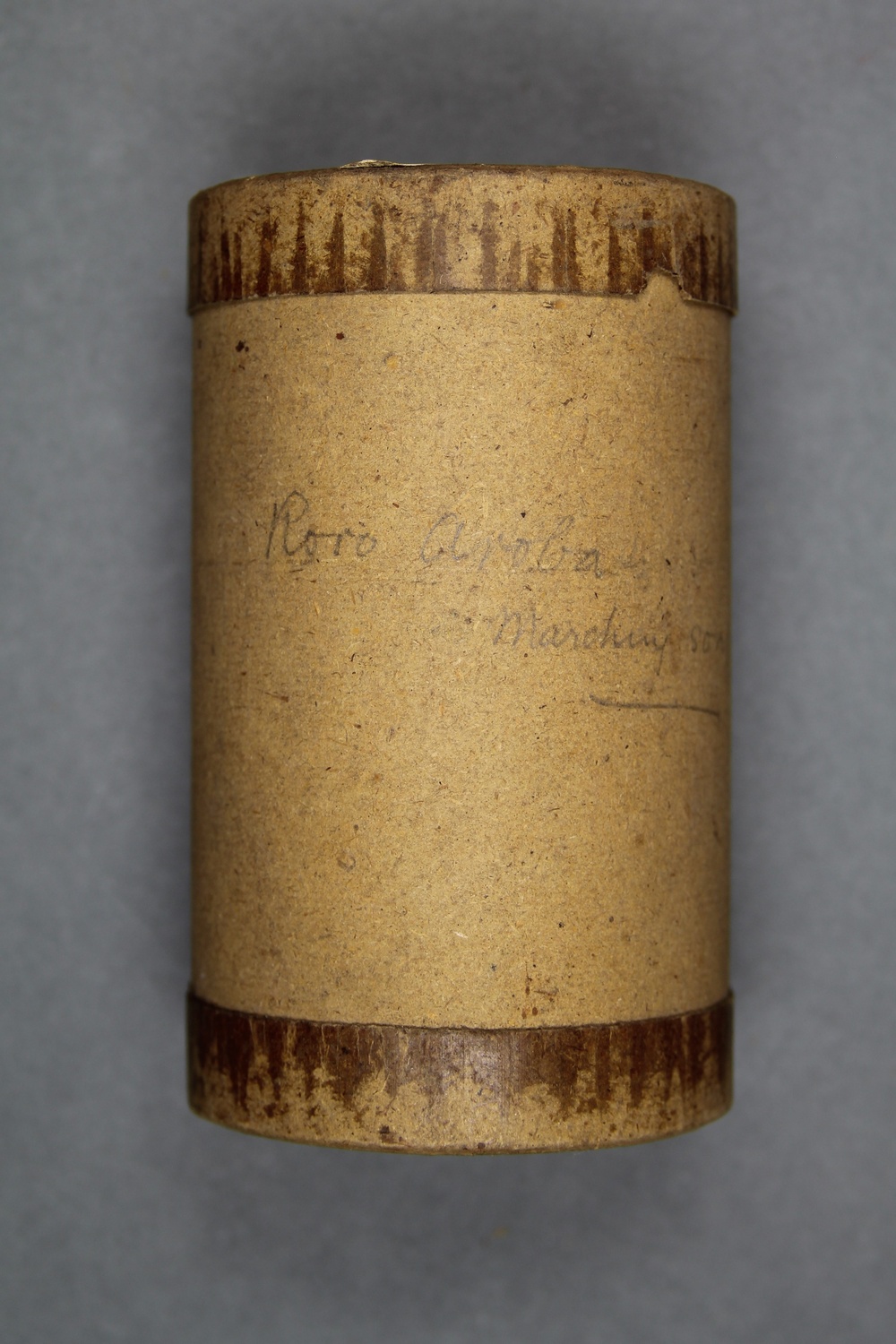     | |||||||
| C80/1477 | Mekeo Dance and Songs | Unidentified (male chorus) | Mekeo, Central District, British New Guinea | 7 July 1898 – 18 July 1898 | 1. Announcement: "Dance Song." 2. Unaccompanied male vocal group. 3. "[indecipherable] song". 4. Unaccompanied male vocal group. 5. "[indecipherable] song. 6. Unaccompanied male vocal group. | Poor quality recording with poor tracking throughout due to broken cylinder. | Mekeo | Field recordings | Ray, Sidney | 2'23" | Alfred Cort Haddon 1898 Expedition, British New Guinea | Light brown wax cylinder | Alfred Cort Haddon 1898 Expedition (Torres Strait and British New Guinea) Cylinder Collection | British Library | 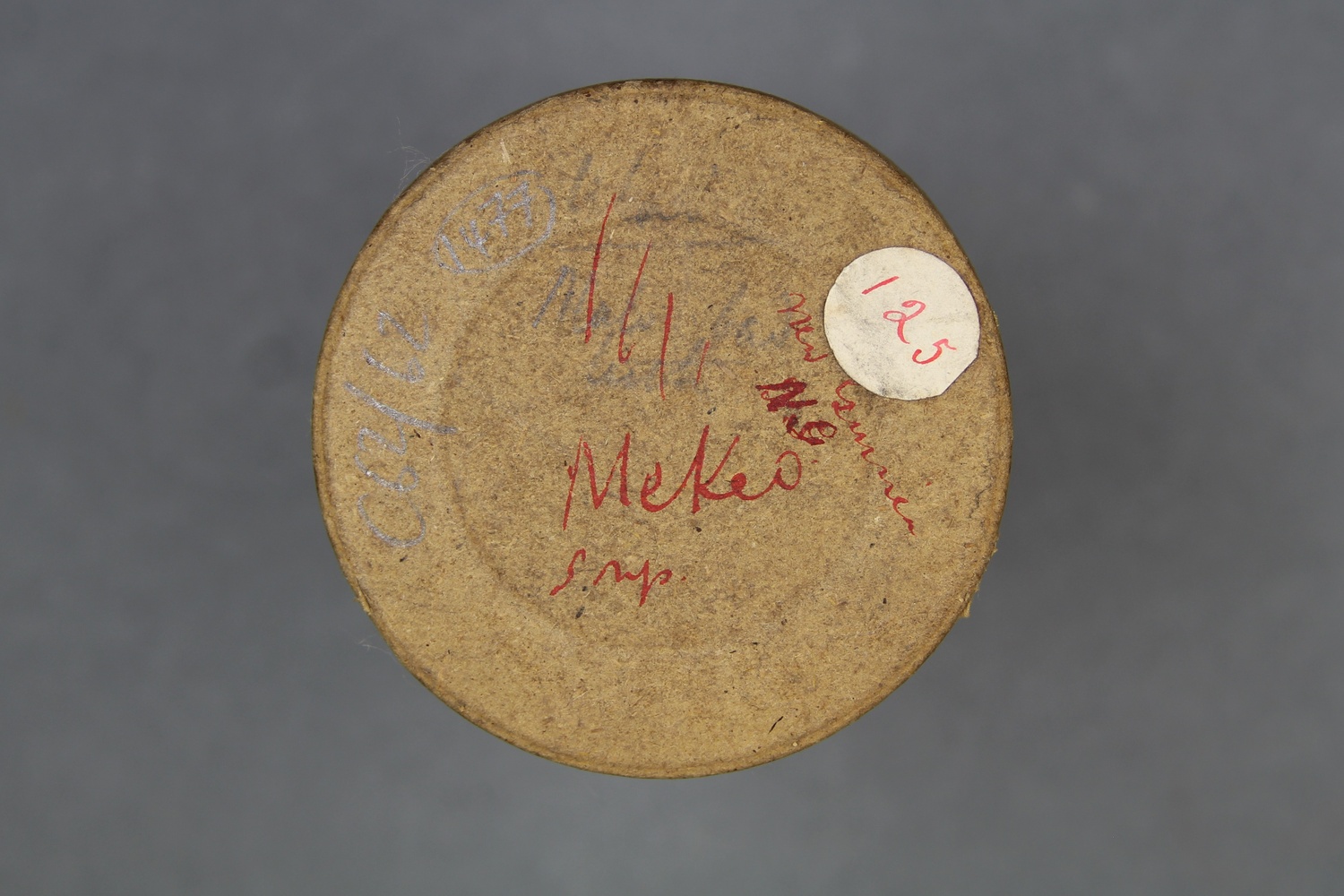 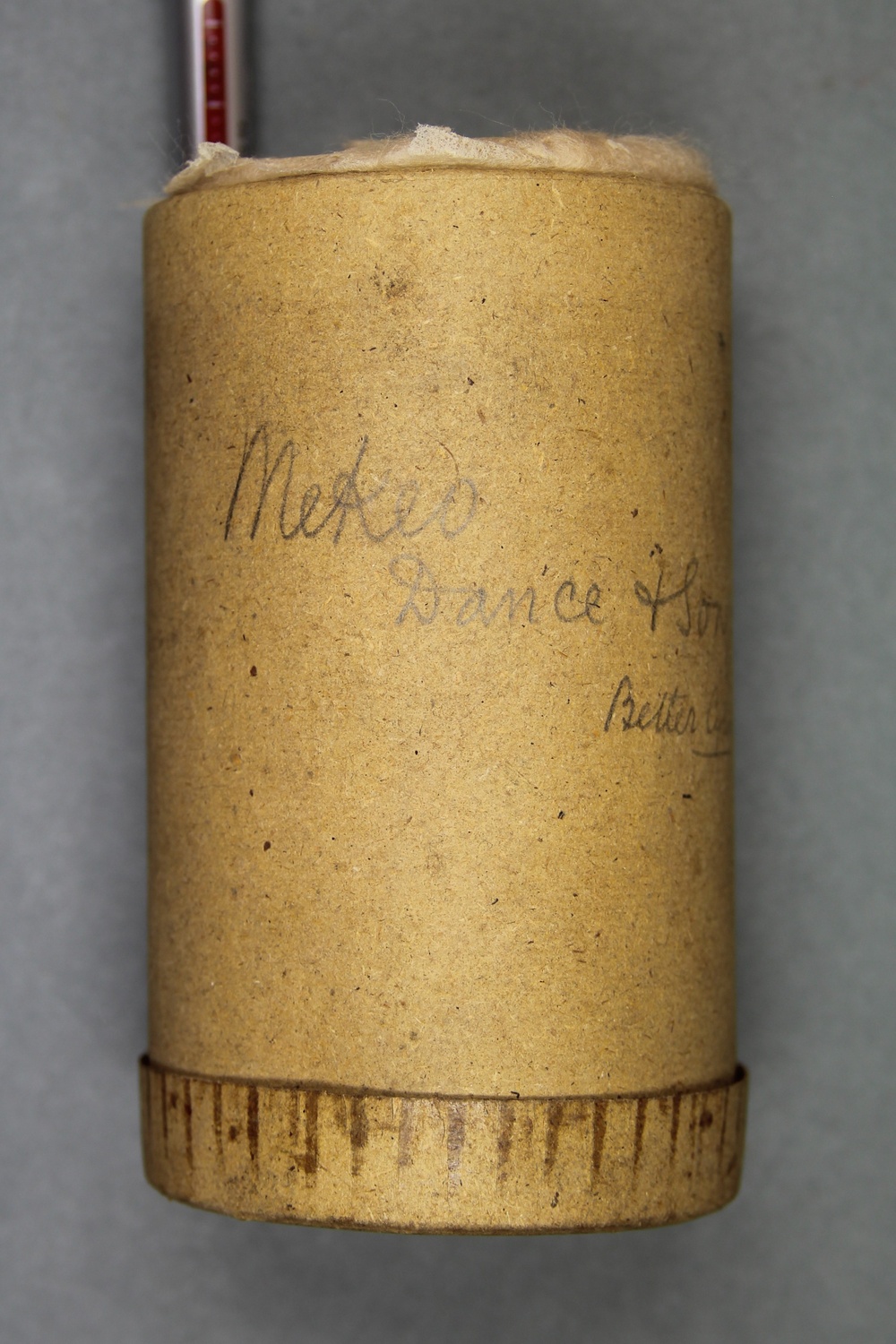 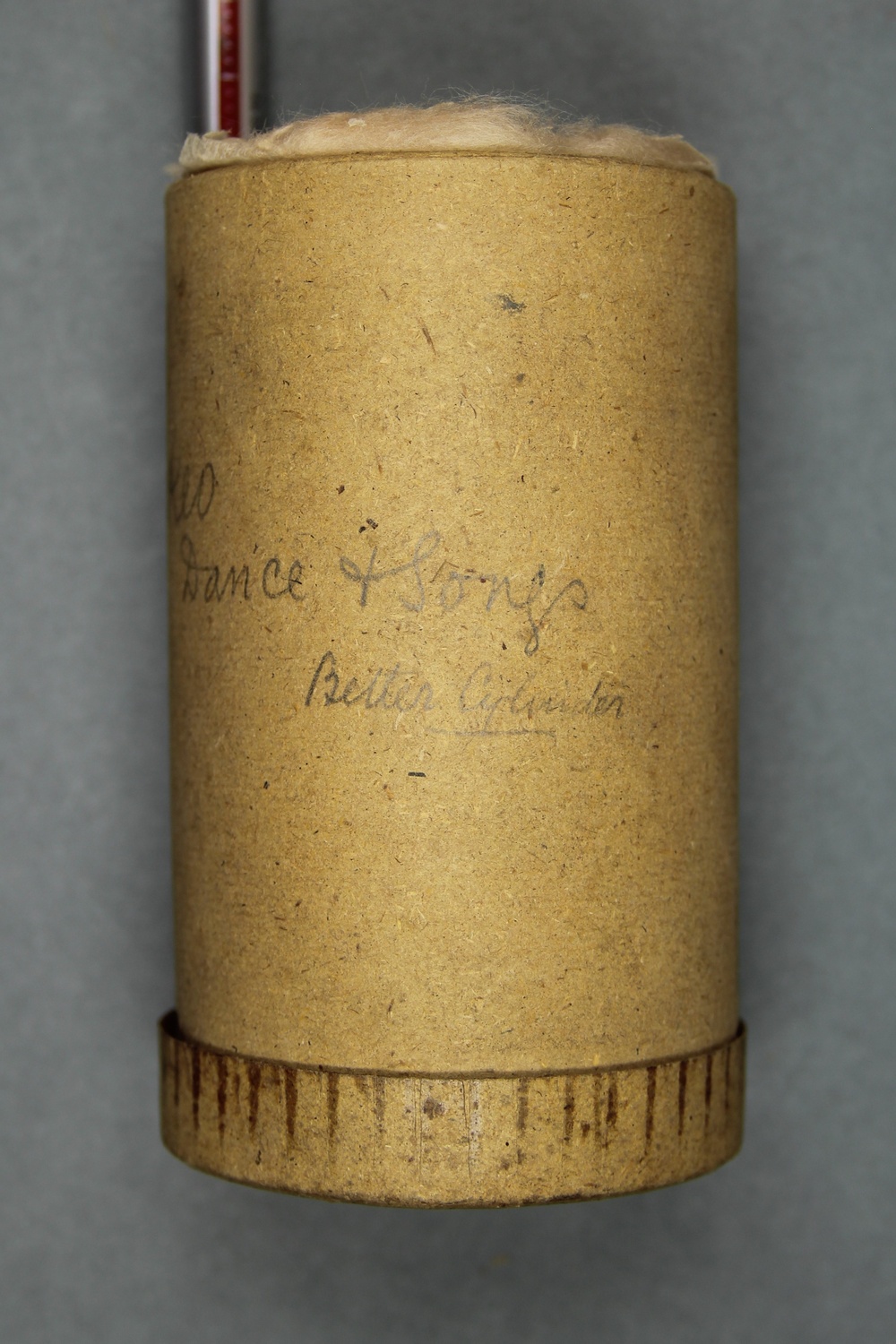    | |||||||
| C80/1478 | Roro Language | Matzu (speaker, male, chief of Mo'u) | Mohu, Central District, British New Guinea | 9 July 1898 | 1. Announcement: "Speech ...[indecipherable]... of Mon." 2. Solo male speech. 3. Indec. announcement. 4. Solo male speech. 5. "The song of the [indecipherable]. 6. Unaccompanied male vocal solo. Haddon commented that Ray had “recorded a speech by Matsu, the chief, in which he exhorted the people to make the Government road, and finished off with a hunting song. This speech sounded very fine; it begins with the customary loud clearing of the throat, and the sentences come in bursts, the intervals of silence being evidently part of the orator’s art” (Haddon 1901:268). | Reasonable quality recording. | Waima / Roro | Field recordings; Speeches | Ray, Sidney | 2'38" | Alfred Cort Haddon 1898 Expedition, British New Guinea | Light brown wax cylinder | Alfred Cort Haddon 1898 Expedition (Torres Strait and British New Guinea) Cylinder Collection | British Library | 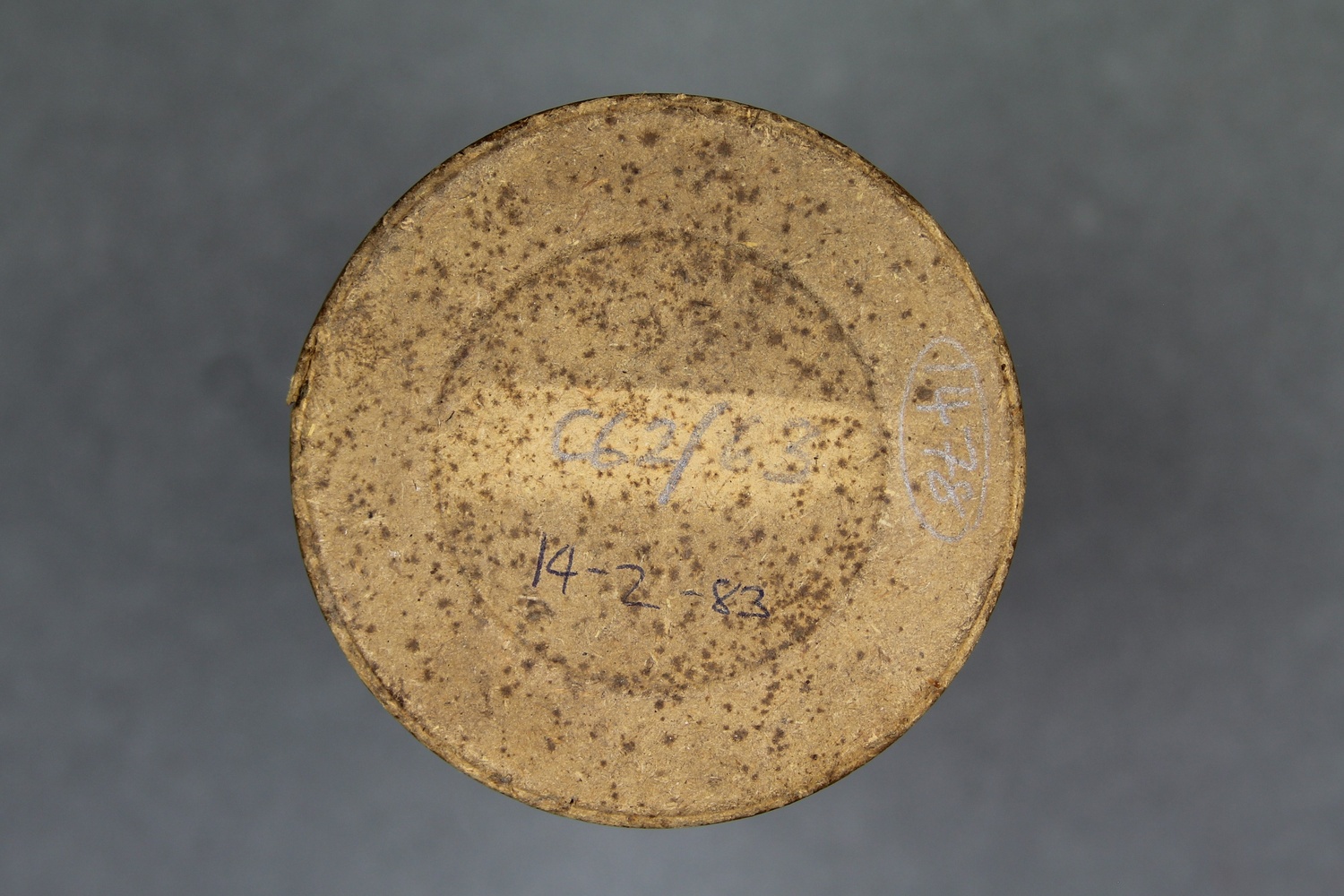      | Haddon, Alfred Cort. 1901. Head-Hunters. Black, White and Brown. London: Metheun & Co. | ||||||
| C80/1480 | Roro Hymn [2] | Unidentified (singer, male); unidentified (piano) | Roro language area, Central District, British New Guinea | 7 July 1898 – 18 July 1898 | 1. Solo male vocal, accompanied by piano. | Poor quality recording with weak signal and surface noise - improves towards end. | Waima / Roro | Field recordings; Hymns | Ray, Sidney | 1'55" | Alfred Cort Haddon 1898 Expedition, British New Guinea | Light brown wax cylinder | Alfred Cort Haddon 1898 Expedition (Torres Strait and British New Guinea) Cylinder Collection | British Library | 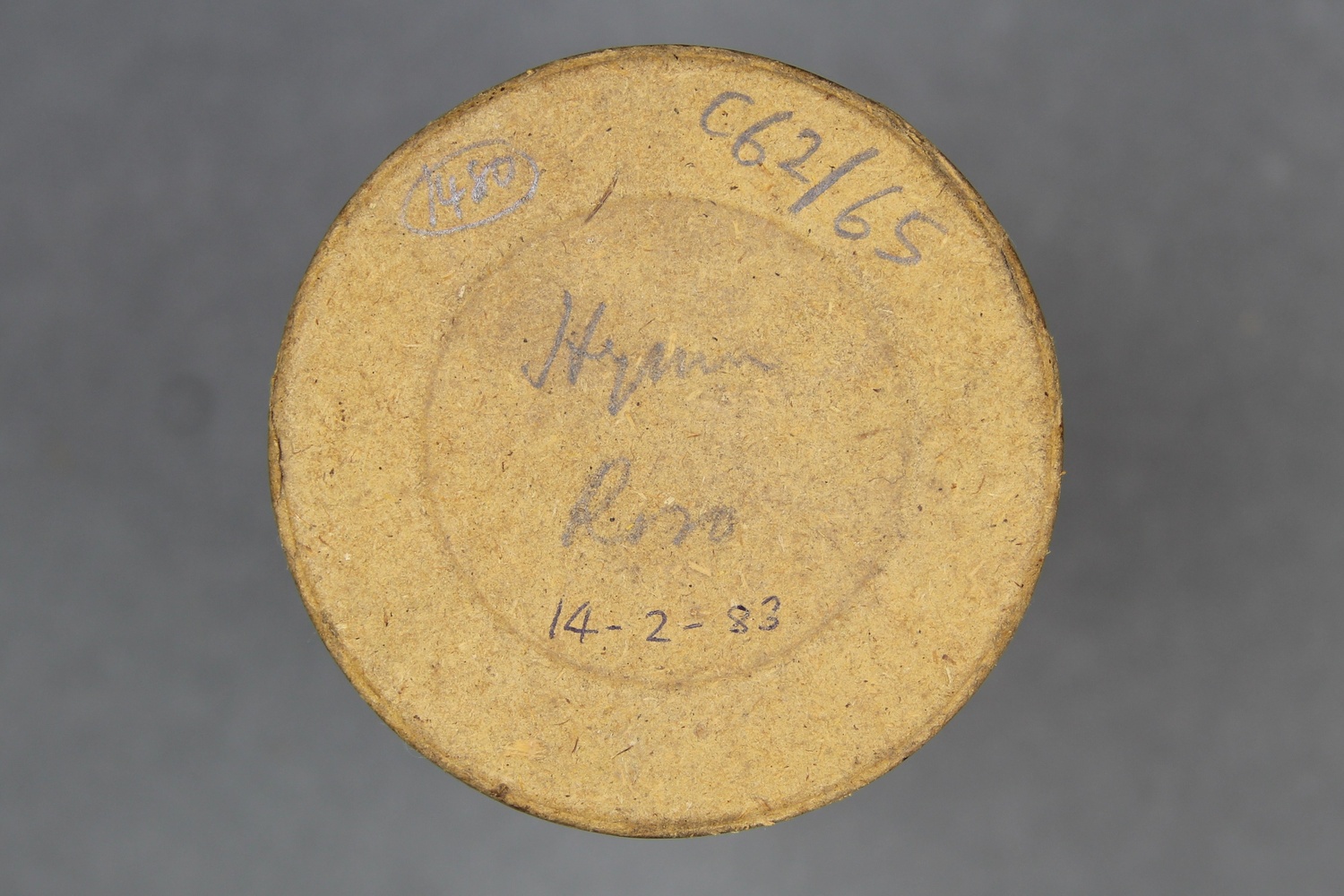 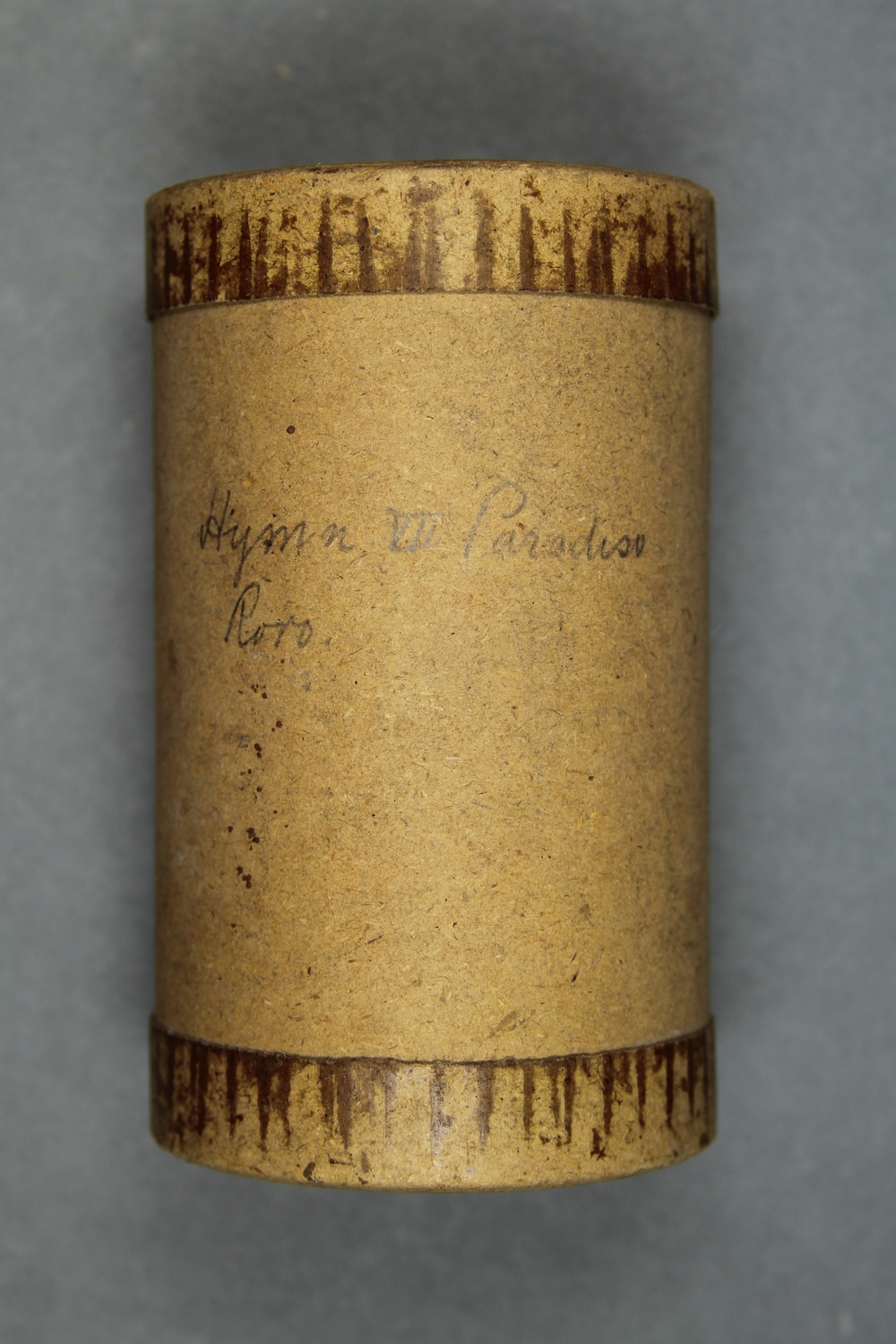     | |||||||
| C80/816 | Vocal group | Unidentified (male chorus) | Torres Strait Islands, or British New Guinea | 22 April 1898 – 15 November 1898 | Unaccompanied mixed vocal group singing in harmony. No further information available. This may be a Torres Strait or New Guinea cylinder. The cylinder does not have a box and is bandaged at both ends. | Reasonable quality recording. As no specific recording location has been identified, the recording date range is based on when any members of the Cambridge Expedition were present in the Torres Strait or New Guinea in 1898. | Field recordings | 1'42' | 1898 Cambridge Anthropological Expedition to Torres Straits | Brown wax cylinder. No case. | Alfred Cort Haddon 1898 Expedition (Torres Strait and British New Guinea) Cylinder Collection | British Library | 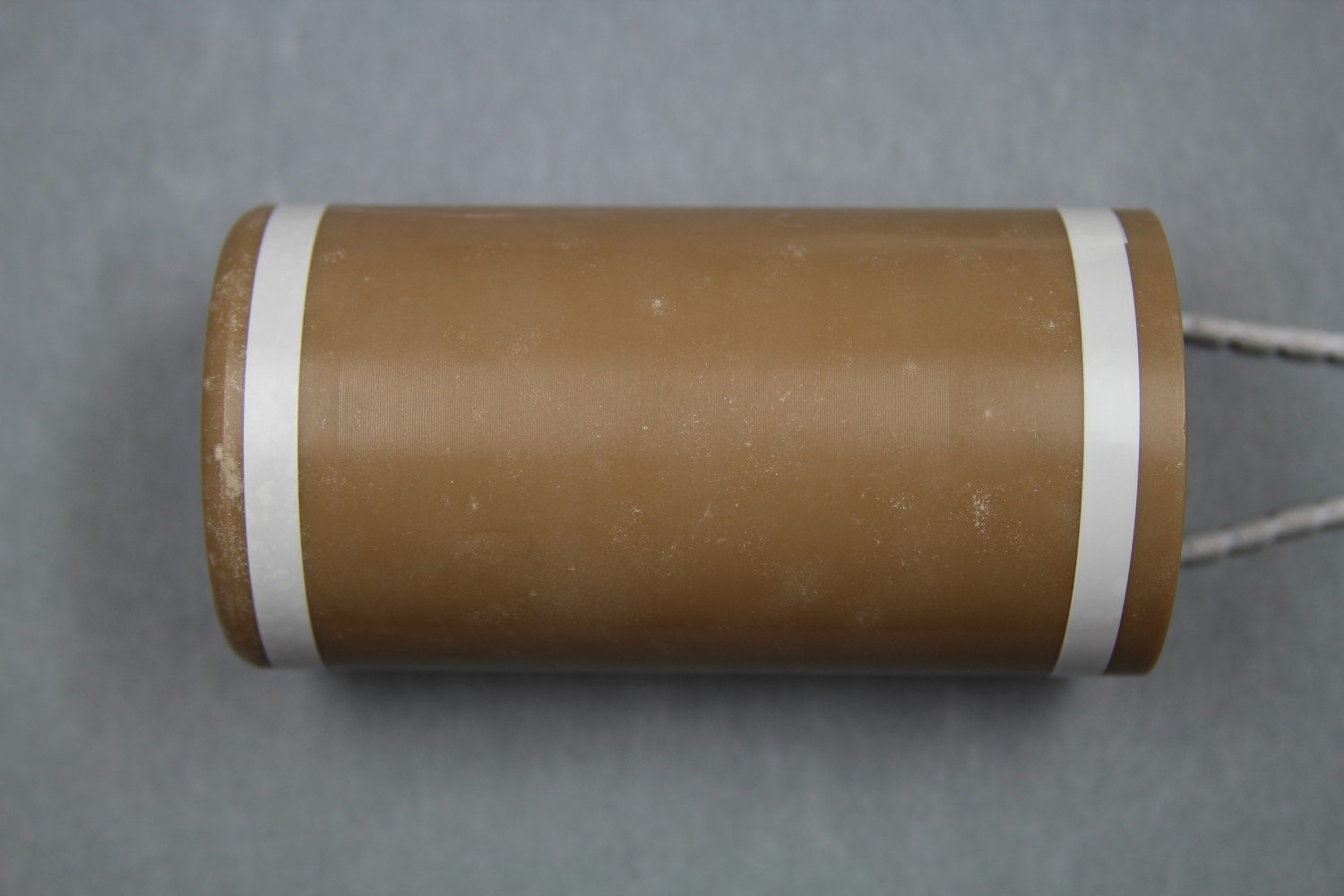      |
These include all recordings identified as Roro, Mekeo, Mekeo/Roro, as well as unidentified recordings.



